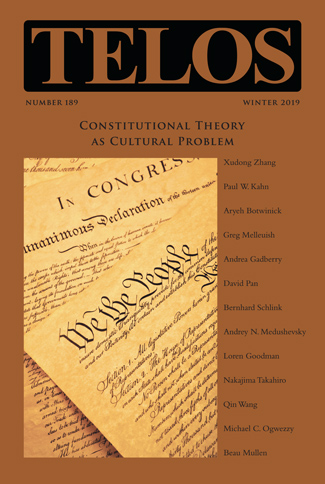edited by Xudong Zhang and David Pan
| Liberal democratic model of government in the twenty-first century have made constitutional theory into an urgent topic of global concern. While the constitutional state, as theory and practice in modern Europe, North America, and Asia, continues to be the common point of reference, its stability and legitimacy can no longer be taken for granted, thus requiring renewed thinking about its history and cultural foundations. At the same time, the shift of economic and productive centers of gravity from the West to other parts of the world comes not only with a whole range of issues regarding geopolitics, international relations, and security but also with a new sense of urgency to study different state forms, forms of sovereignty, notions of democracy and freedom, and political legitimacy as they are rooted in and informed by long-standing social and cultural norms. By placing them under the sharp focus of constitutional theory and theories of sovereignty, this issue of Telos seeks to promote a sustained dialogue between scholars and thinkers from both the West and the non-Western world in an area defined by the intersection between critical theory and political philosophy. |
In this special issue, names of EAA member (NAKAJIMA Takahiro, Qin Wang, and Xudong Zhang) appear.
・Nakajima, Takahiro. ”Constitutionalism and Sovereignty: On Constitutional Problems in Japan”
・Wang, Qin. “Constitution and Literariness: Takeuchi Yoshimi’s Critique of the Postwar Japanese Constitution”
For more details, please see the telos website.

Configurations of the Individual in Modern Chinese Literature
世界哲学史1─古代Ⅰ 知恵から愛知へ








